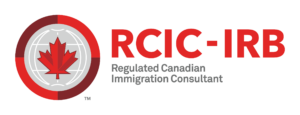Trump’s Tariff: Bad News for Canadians?

Analyzing the Impact of US Tariffs on Canada
Former Bank of England Governor Mark Carney has expressed concerns about the recent 35% tariff imposed on Canadian goods. This development is particularly important for Canadians, including immigrants in the Greater Toronto Area and across Canada, who often rely on stable cross-border economic relationships for business opportunities, jobs, and family connections.
Effects on Canadian Businesses
The 35% tariff creates immediate difficulties for Canadian businesses that export goods to the United States. For instance, auto parts manufacturers in Ontario, who depend heavily on exports, now face a considerable price disadvantage. This could lead to decreased production, potential layoffs, and a slowdown in economic activity in areas like Windsor and the Niagara Peninsula.
Small and medium-sized enterprises (SMEs) will likely be most affected. They often have limited resources to navigate the tariff situation, find other markets, or absorb the increased costs, further complicating their operations.
Job Security Implications
Beyond the direct impact on businesses, there are wider concerns about job security. Industries heavily reliant on exports to the US, such as forestry in British Columbia and agriculture in the Prairies, may experience job losses if they cannot adapt to the new tariff regime. A recent report by the Canadian Centre for Policy Alternatives suggests potential job losses across various sectors.
Impact on New Canadians
The uncertainty resulting from these tariffs disproportionately affects recent immigrants who are establishing themselves in Canada. Many depend on jobs in export-related industries or have family businesses that rely on cross-border trade. The increased cost of goods and potential job losses add to their existing challenges.
Potential Rise in the Cost of Goods
Consumers in Canada will likely see an increase in the price of goods as businesses pass on the tariff costs. Everything from groceries to automobiles could become more expensive, straining household budgets, particularly for low-income families. The inflationary pressure created by the tariff poses a risk to economic stability and affordability nationwide.
Moving Forward
The Canadian government will likely explore various options, including retaliatory tariffs and negotiations with the US administration. It’s important to monitor these developments and understand their potential impact on your business and job prospects. Consider consulting with local business advisory services to explore strategies for adapting to the changing economic environment. For example, the Innovation, Science and Economic Development Canada website provides resources and support for Canadian businesses.
While the future is uncertain, staying informed and proactive is the best way to lessen the negative effects of these tariffs. This includes exploring opportunities to diversify markets and improve efficiency. You can also advocate for policies that support Canadian businesses and workers. Dealing with tariffs requires vigilance and adaptability from all Canadians. Check the Canada Revenue Agency website for information on potential tax implications. Contacting local MPs can also help your voice be heard. For more information about trade visit International Trade Resources.

